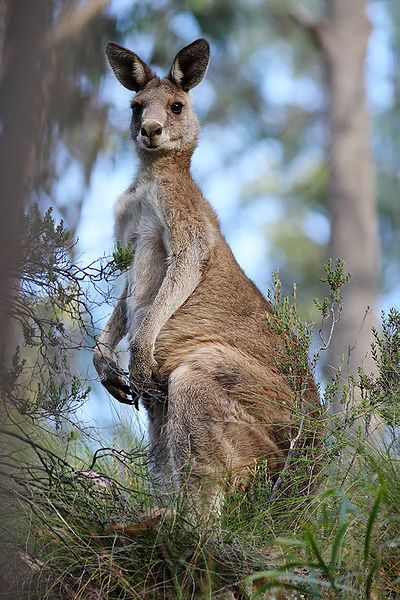2.1 The story Paco had never heard about
Australian English began diverging from British English shortly after the foundation of the Australian penal colony of New South Wales in 1788. British convicts who had been sent there, including Cockneys from London, came mostly from large English cities. They were joined by free settlers, military personnel and administrators, often with their families. However, a large part of the convict body were Irish, with at least 25% directly from Ireland, and others indirectly via Britain. There were other populations of convicts from non-English speaking areas of Britain, such as the Welsh and Scots. English was not spoken, or was poorly spoken, by a large part of the convict population and the dominant English input was that of Cockney from South-East England.
In 1827 Peter Cunningham, in his book Two Years in New South Wales, reported that native-born white Australians of the time—known as "currency lads and lasses"—spoke with a distinctive accent and vocabulary, with a strong Cockney influence. The transportation of convicts to Australia ended in 1868, but immigration of free settlers from Britain, Ireland and elsewhere continued.
The first of the Australian gold rushes, in the 1850s, began a much larger wave of immigration which would significantly influence the language. During the 1850s, when the UK was suffering economic hardship, about two per cent of its population emigrated to the Colony of New South Wales and the Colony of Victoria.
Among the changes wrought by the gold rushes was "Americanisation" of the language—the introduction of words, spellings, terms, and usages from North American English. The words imported included some later considered to be typically Australian, such as dirt and digger. Bonzer, which was once a common Australian slang word meaning "great", "superb" or "beautiful", is thought to have been a corruption of the American mining term bonanza, which means a rich vein of gold or silver and is itself a loanword from Spanish. The influx of American military personnel in World War II brought further American influence; though most words were short-lived; and only okay, you guys, and gee have persisted.1
 |
| By Jason7825. GNU Free Documentation License |
When they entered the Concert Hall, Paco was astonished not only because of the great view of the room but also because he couldn't believe Australia had been a penal colony where convicts from the United Kingdom had been sent from 1788 to 1868.
Adapted from Wikipedia.org
Remember that in defining relative clauses if the antecedent is a person, the relative pronouns are either who or that. If it is a thing or animal the relative pronouns are either which or that. E.g.
People: British convicts who had been sent there... (that is also possible)
Thing: a much larger wave of immigration which would significantly influence the language (that is also possible)
It is also important to bear in mind that if the relative clause already has a subject, it means that the relative pronoun works as the object of the sentence and it is usually dropped. E.g.
The story (which/that) Paco had never heard about
To complete your knowledge of defining relative clauses, it is a good idea to surf the web and read information on the subject. In order to do so, we offer you several links to different websites. Click on them and learn!
Remember that the best way to improve your English is by practising. Click on the pictures below to do lots of online exercises.
|
|
The myth of the word kangaroo
As you know, kangaroos are native to Australia. Do you know where the word kangaroo derives from? Fill in the blanks with a relative pronoun. Choose from who, which, whose. If the relative is not needed, write a hyphen (-). You will learn something about this fantastic Australian animal.
The word kangaroo1
 |
| By Fir0002. GNU Free Documentation License |
The word kangaroo derives from the Guugu Yimidhirr word gangurru refers to a grey kangaroo. The name was first recorded as "Kangooroo or Kanguru" on 4 August 1770. It was Lieutenant (later Captain) James Cook recorded it on the banks of the Endeavour River at the site of modern Cooktown, when HM Bark Endeavour was beached for almost seven weeks to repair damage sustained on the Great Barrier Reef. Guugu Yimidhirr is the language of the people live in the area.
A common myth people have frequently told about the kangaroo's English name is that 'kangaroo' was a Guugu Yimidhirr phrase for "I don't understand you." According to this legend, Captain James Cook and naturalist Sir Joseph Banks were exploring the area when they happened upon the animal. They asked a nearby local what the creatures were called. The local responded "Kangaroo", meaning "I don't understand you", which Cook took to be the name of the creature.
Male kangaroos are called bucks, boomers, jacks, or old men; females are does, flyers, or jills, and the young ones are joeys. The collective noun is used for kangaroos is a mob, troop, or court. Kangaroos are often colloquially referred to as roos.
1 Adapted from wikipedia.org